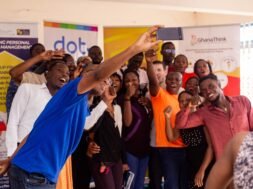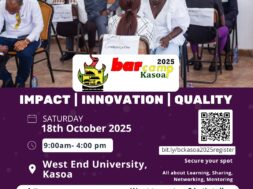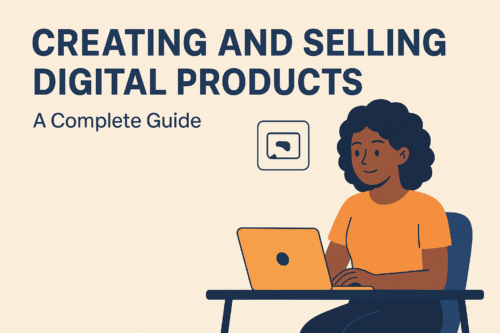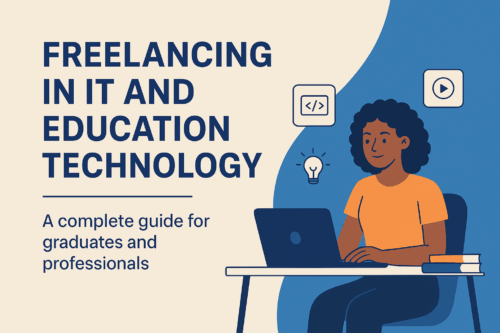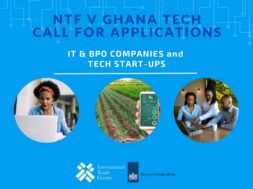16 innovators shortlisted for Africa Prize for Engineering Innovation in its 10th anniversary year

- Shortlist includes engineers from Botswana, Côte d’Ivoire, Ghana, Kenya, Nigeria, Rwanda, Tanzania and Uganda
- Fabrics made from fungi grown on human waste, chicken farming tech, recycled plastic roof tiles, and an app-based waste management service are among 2023 innovations
- Africa Prize innovators join a network of 133 alumni across 21 African countries working to transform the continent with home-grown solutions
- Four finalists will compete for a share of £60,000, with the overall winner receiving £25,000
Sixteen innovators from eight African countries, including Botswana for the first time, have been shortlisted for the 10th Africa Prize for Engineering Innovation.
You can also read South African and Ugandan innovators, Edmund Wessels and Anatoli Kirigwajjo, were awarded £25,000 each as they won the Africa Prize for Engineering Innovation.
The Africa Prize, launched in 2014 by the UK’s Royal Academy of Engineering, demonstrates how ambitious engineering innovators are protecting the environment and transforming the continent’s economy through scalable solutions. Africa Prize innovators are working to address pan-African and international challenges, including adapting food and water systems for climate resilience, developing low-carbon energy and transport solutions, and improving telecommunications, education, financial services and healthcare.
Shortlisted innovations for the 2024 Africa Prize include roof tiles made from recycled plastic, early detection of agricultural pests and diseases, environmental monitoring of chicken farms, and a fabric made from fungi grown on human waste.
Also featured are innovations aimed at healthier methods of cooking, including low-smoke briquettes made from biowaste, a solar-induction oven and hob, and a biodigester that uses organic waste to generate gas. Clean energy solutions include a large-scale power pack made from repurposed electric vehicle batteries, a solar dryer to enhance small fish farming, and converted electric motorbikes with replaceable batteries.
Other innovations include an automated storage locker, a domestic alert for deaf people, a plug-in device to transform any screen into a computer, and a healthcare platform based on WhatsApp.
Engineering is a fundamental enabler of development and is linked to all the United Nation’s Sustainable Development Goals, impacting healthcare, education, gender equality and the environment. Engineering is also a driver of the African Agenda 2063, the African Union’s blueprint for development over the next 50 years, where it is described as supporting the continent’s goal of being “integrated, prosperous and peaceful… driven by its own citizens and representing a dynamic force in the international arena”.
By being shortlisted for the Africa Prize, innovators benefit from support including business incubation, mentoring, fundraising and communication. They also gain access to the Academy’s global network of high-profile engineering and business experts in the UK, Africa and beyond.
Judges, mentors, and expert reviewers for the Africa Prize for Engineering Innovation have provided more than 4000 hours of support to entrepreneurs since the prize was established, equivalent to more than £10.4 million.
“Winning the Prize opened our business up to many opportunities and provided exposure for our solution to the local and international market,” said 2020 Africa Prize winner Charlette N’Guessan from Côte d’Ivoire in 2023, the first woman to win the prize. “I am happy to see the Africa Prize has inspired many young woman innovators to break down barriers.”
Four finalists will be chosen from the shortlist to present their innovations and business plans to judges at the Africa Prize final in Nairobi, Kenya, in June 2024. The winner will receive £25,000, with three runners up awarded £10,000 each. A One-to-Watch award of £5,000 will be made for the most impactful pitch, as voted by the audience. In 2024, the audience will include some 80 Africa Prize alumni from the last ten years.
Africa Prize alumni have supported more than 10 million beneficiaries through their products or services. They have also created more than 28,000 jobs – including more than 21,000 jobs for women and more than 500 jobs for persons with disabilities – and raised more the USD 39 million in grants and equity funding, directly contributing to 15 of the UN Sustainable Development Goals.
Africa Prize judge Sewu-Steve Tawia said, “The 16 innovators shortlisted for this year’s Africa Prize for Engineering Innovation are contributing to key Sustainable Development Goals including no poverty, health and wellbeing, quality education, affordable and clean energy, reduced inequalities, and climate action. What sets these 16 people apart is their determination to solve local challenges, contribute to job creation and seizing the opportunity to scale their innovation across Africa. In its tenth year, the Africa Prize is proud to elevate these local changemakers to global engineering innovators.”
Shortlisted innovations and entrepreneurs:
- Beba-Beggie, Charles Oduk, Kenya – An IoT automated locker technology offering affordable, accessible, secure and convenient short-term storage.
- Biomass Briquettes, Ludo Ntshiwa, Botswana – An environmentally-friendly clean fuel that harnesses the green energy of biowaste to produce a renewable energy source for heat production as a substitute for charcoal.
- Early Crop Pest and Disease Detection Device, Esther Kimani, Kenya – A solar-powered tool using AI- and machine learning-enabled cameras to detect and identify agricultural pests and diseases early.
- Eco Tiles,Kevin Maina, Kenya – An environmentally-friendly roofing material made from recycled plastic.
- Kiri EV,Christopher Maara, Kenya – An end-to-end affordable and clean energy mobility provider, from electric motorcycles, scooters and tuktuks to battery charging infrastructure across Kenya.
- Knock Knock, Esther Mueni, Kenya – A domestic alert system for the deaf and hard of hearing, using a highly sensitive vibration sensor to detect physical knocks on a door and transmit this information to smartphones via Bluetooth.
- Kuza Freezer, Purity Gakuo, Kenya – A durable low-cost solar-powered fridge freezer made from recycled plastic waste.
- La Ruche Health, Rory Assandey, Côte d’Ivoire – A smart healthcare platform that provides communities in remote areas with direct access to vital healthcare information via WhatsApp, facilitates appointments to vetted medical practitioners, and digitises medical records for smooth patient onboarding.
- MakSol Cooker, Paul Soddo, Uganda – A low-cost, solar-powered induction oven and hob designed for safe, zero-emissions indoor cooking by people in off-grid communities.
- MAVUNOLAB Solar Dryer, Dr Evodius Rutta, Tanzania – A low-cost solar-powered dryer developed to help small-scale fish processors and farmers in off-grid locations by enhancing food safety and hygiene for perishable food products.
- Microfuse Stick Computer, Ivan Karugaba, Uganda – A compact and affordable device that plugs in to any screen, projector or monitor to transform it into a Wi-Fi-connected computer, increasing computer access and digital inclusivity.
- Myco-Substitutes, Abubakari Zarouk Imoro, Ghana – An eco-friendly sewage treatment that uses viruses, bacteria, and fungi to treat and feed on faecal waste and produce yarn and leather substitutes.
- PenKeep, Adaeze Akpagbula, Nigeria – A climate-smart remote sensing device that monitors and controls environmental conditions in poultry farms, ensuring optimal health and productivity of chickens.
- Second-Life Batteries, Léandre Berwa, Rwanda – A solution that repurposes retired electric vehicle (EV) batteries to be assembled as a back-up power supply for telecom towers and mini electricity grids.
- The Kitchen Box, Tunde Adeyemi, Nigeria – An affordable biogas digester technology which turns any type of organic waste into animal feed and organic fertiliser, and generates clean energy for heating and cooking.
- Yo-Waste, Martin Tumusiime, Uganda – A location-based mobile application that connects homes and businesses to independent agents for an efficient on-demand rubbish collection and disposal service.
The Africa Prize for Engineering Innovation, founded by the Royal Academy of Engineering in 2014, is Africa’s biggest prize dedicated to developing African innovators and helping them to maximise their impact. It gives commercialisation support to ambitious African innovators developing scalable engineering solutions to address local challenges, demonstrating the importance of engineering as an enabler of improved quality of life and economic development.
An eight-month period of tailored training and mentoring culminates in a showcase event where a winner is selected to receive £25,000, along with three runners-up, who are each awarded £10,000. One shortlisted innovator with receive an award of £5,000 as ‘The One to Watch’.
The Africa Prize has been generously supported by the UK Government, including the UK’s Department for Science, Innovation and Technology’s Official Development Assistance funding, as well as charitable trusts and foundations, individual donors and corporate partners over the last ten years.
This year, the Africa Prize for Engineering Innovation judges are:
- Dr Ibilola Amao, Founder and Principal Consultant, Lonadek Global Services
- Malcolm Brinded CBE FREng (Chair of judges), Past President of the Energy Institute, former Chair of EngineeringUK
- Dr Alessandra Buonfino, Senior Advisor, Global Innovation Fund, Consultant, International Research Fellow; Said Business School, Oxford University
- Rebecca Enonchong FREng, Founder and CEO, AppsTech
- Dr John Lazar CBE FREng, Co-founder and General Partner, Enza Capital; Chair, What3words and Raspberry Pi Foundation
- Sewu-Steve Tawia, Co-founder and Managing Partner, Jaza Rift Ventures
More information can be found here: www.raeng.org.uk/africaprize
- The Royal Academy of Engineering is harnessing the power of engineering to build a sustainable society and an inclusive economy that works for everyone.
In collaboration with our Fellows and partners, we’re growing talent and developing skills for the future, driving innovation and building global partnerships, and influencing policy and engaging the public.
Together we’re working to tackle the greatest challenges of our age.

